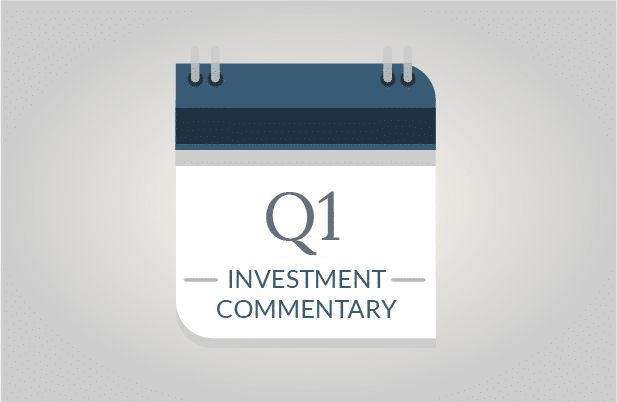Volatility certainly surfaced in the markets over the past several weeks. Numerous stock markets around the world entered correction territory, marked by a 10 percent decline or more, all within a period of a few short weeks. During volatile times, one of the worst investment decisions you can make is to sell into fear. However, there are a few investment strategies you might wish to consider amidst volatility in the markets.
Know What Investments You Own
This may sound coy, but it’s important to ask yourself if you know what investments you own. This is particularly important if you’re self-managing some or all of your investments. It’s been a decade since our last significant market event, meaning that you’re now ten years older, and ten years closer to retirement. Do you know if your investment holdings align with your future income needs and investment objectives? If the answer is no, then it’s time to pull out your statements, take a closer look, or contact us to discuss your positioning.
A few areas that currently give us pause and that we encourage readers to carefully consider include:
Corporate And High Yield (Junk) Bonds
Don’t be fooled by thinking that all bonds are alike. People typically buy bonds for income and stability. However, corporate and high yield (junk) bonds could be subject to significant downward risk if market volatility continues to spike. We certainly saw this in 2008. This is of particular concern today, because corporate bond issuance reached new highs in recent years as interest rates dropped. This made debt incredibly cheap, almost a form of free money for companies. Companies are highly leveraged today as a result, meaning that bonds could be at risk, particularly if credit ratings continue slipping as they’ve been doing.
We’ve been steadily increasing the quality of our bonds over the past year. If you need capital preservation, this is the time to evaluate the quality of your bonds, possibly integrating more Treasury bond exposure.
Technology Stocks
Technology stocks have been on a tear, helping to drive the market run-up for the past couple of years. However, the darlings of the market hey-day have been some of the worst hit stocks in recent weeks. Technology is certainly the wave of the future, but valuations have become rich, virtually off-the-charts for some companies. If you’ve let your technology holdings swell in your portfolio mix, it’s advisable to consider the potential risks now.
Emerging Market Investments
One of the most volatile investment spaces is emerging markets. These are investments in developing countries, where risks are higher due to political, financial, currency and other market variables. Emerging market returns tend to be feast or famine, as demonstrated time and time again in the past. They were top of the charts last year in 2017, and are bottom this year.
If you own international investments, it’s wise to know how much of those investments are exposed to emerging markets. More emerging market investments are private today than ever before, as compared to a historical preponderance of bank and government loans. This means that money might not be as sticky, and could flee emerging markets more easily and quickly, potentially resulting in greater volatility than in years past.
Concentrated Positions
Regardless of what the investment is, it pays to always be careful of holding too much concentration in any one investment or sector. If you’re holding concentrated positions, consider trimming back through outright sales or perhaps by charitably gifting a portion of the position. Charitable gift funds are a great tool for gaining an itemized deduction and trimming back a position without realizing any capital gains.
Be A Disciplined Investor
Part of being a good investor is maintaining discipline in your approach. This requires taking a long-term approach, holding a diverse mix of investments, not timing the markets (which is inherently dangerous), taking profits when the markets prosper, and buying as the markets dip. If you’ve sold during market declines in the past, this is a prime time for self reflection. Ask yourself if you’ll be disciplined during the next market downturn. If the answer’s no, it’s time to contact us to engage in a pre-emptive and pro-active conversation.
Be Ready To Buy
Finally, remember that wise investing not only considers where to be invested now, but what you might want to invest in tomorrow. If the markets do experience a significant downturn, that’s the best time to buy, but this requires capital to do so. Make sure you have flexibility in your portfolio or finances to buy when the opportunity arises, hopefully capturing smart long-term investment plays.
SageVest Wealth Management proudly serves as a fee-only, fiduciary advisor, helping individuals and families secure their financial futures through wise investment and financial strategies. Please contact us if you would like to discuss your investment positioning, retirement planning, or other financial planning considerations.




